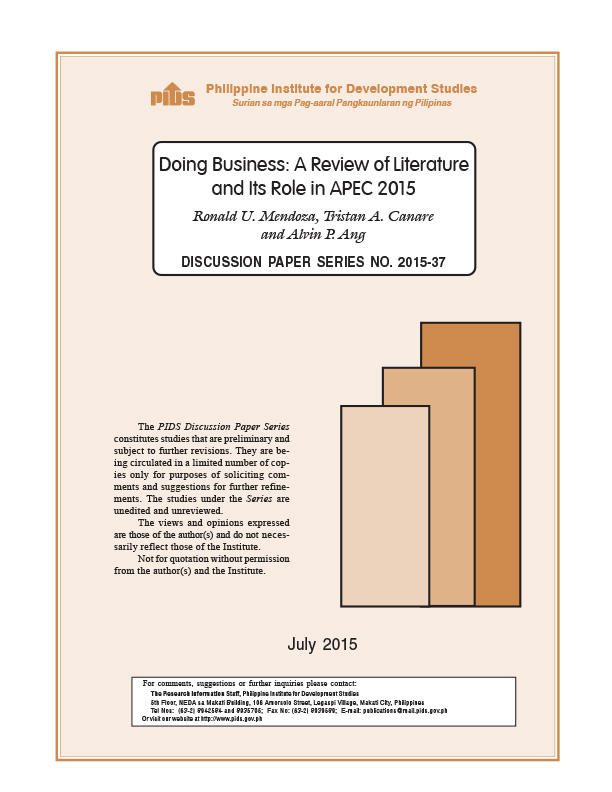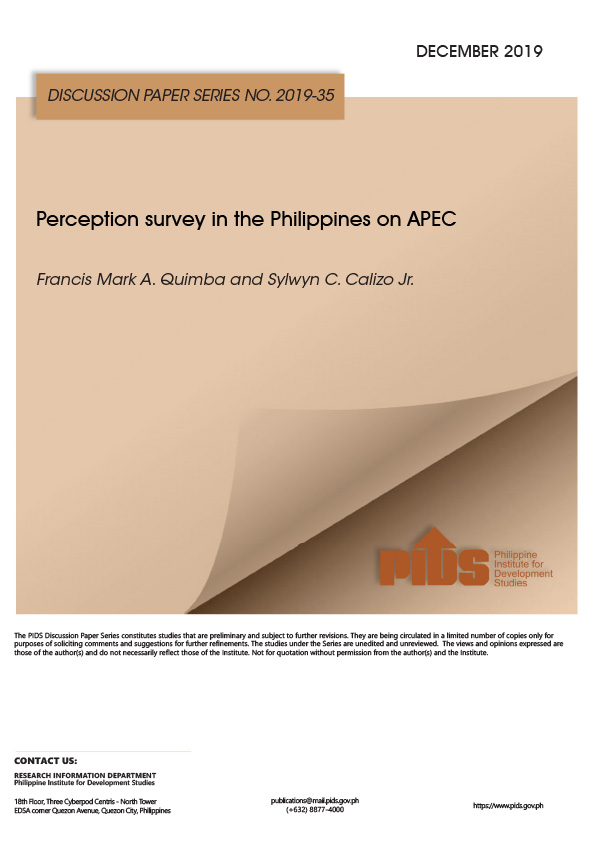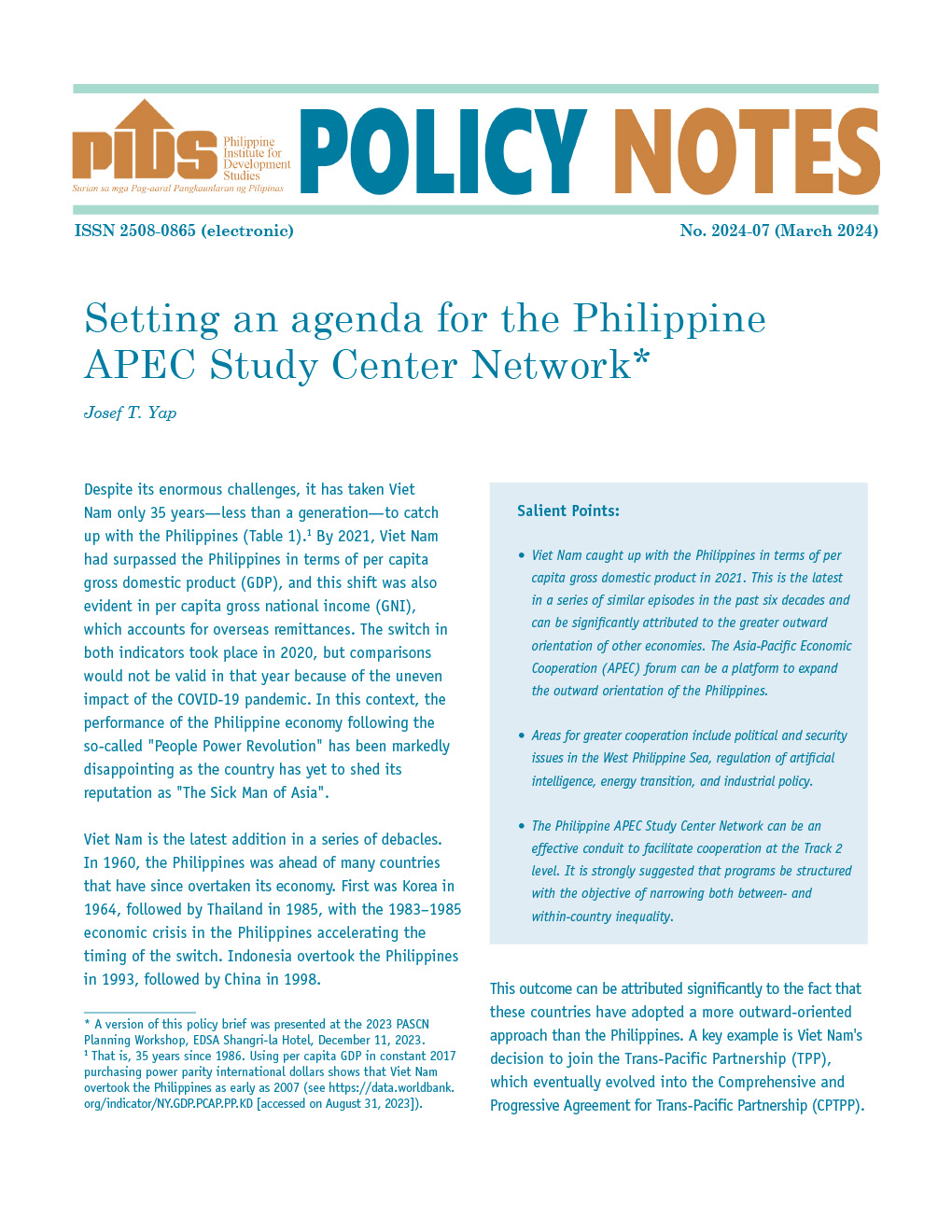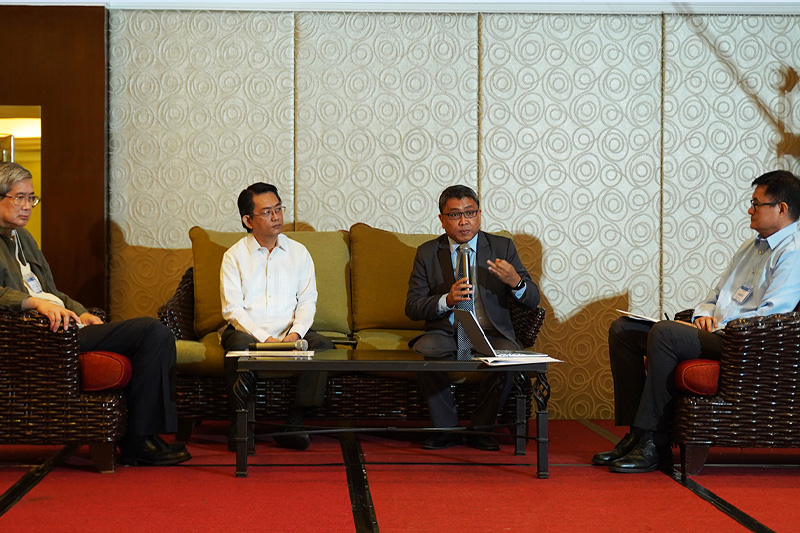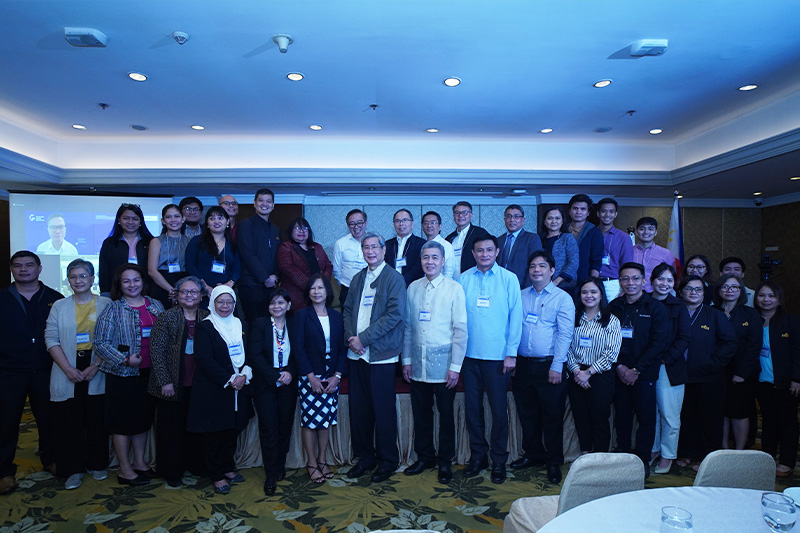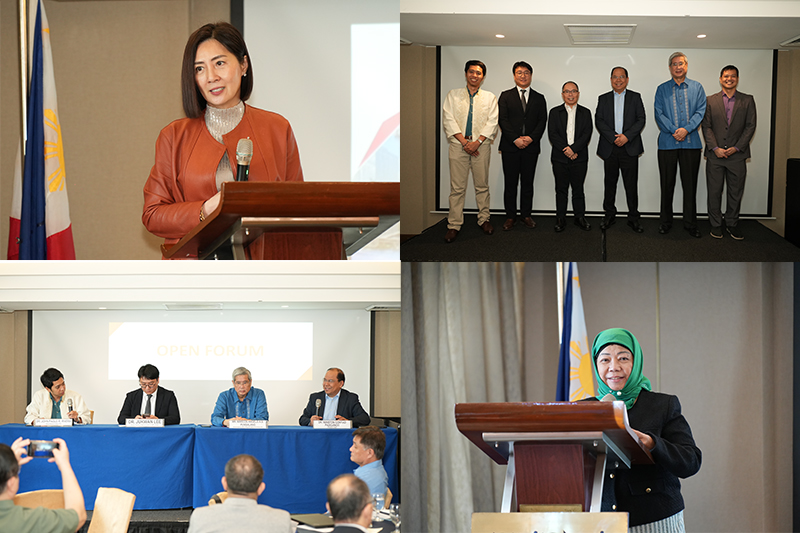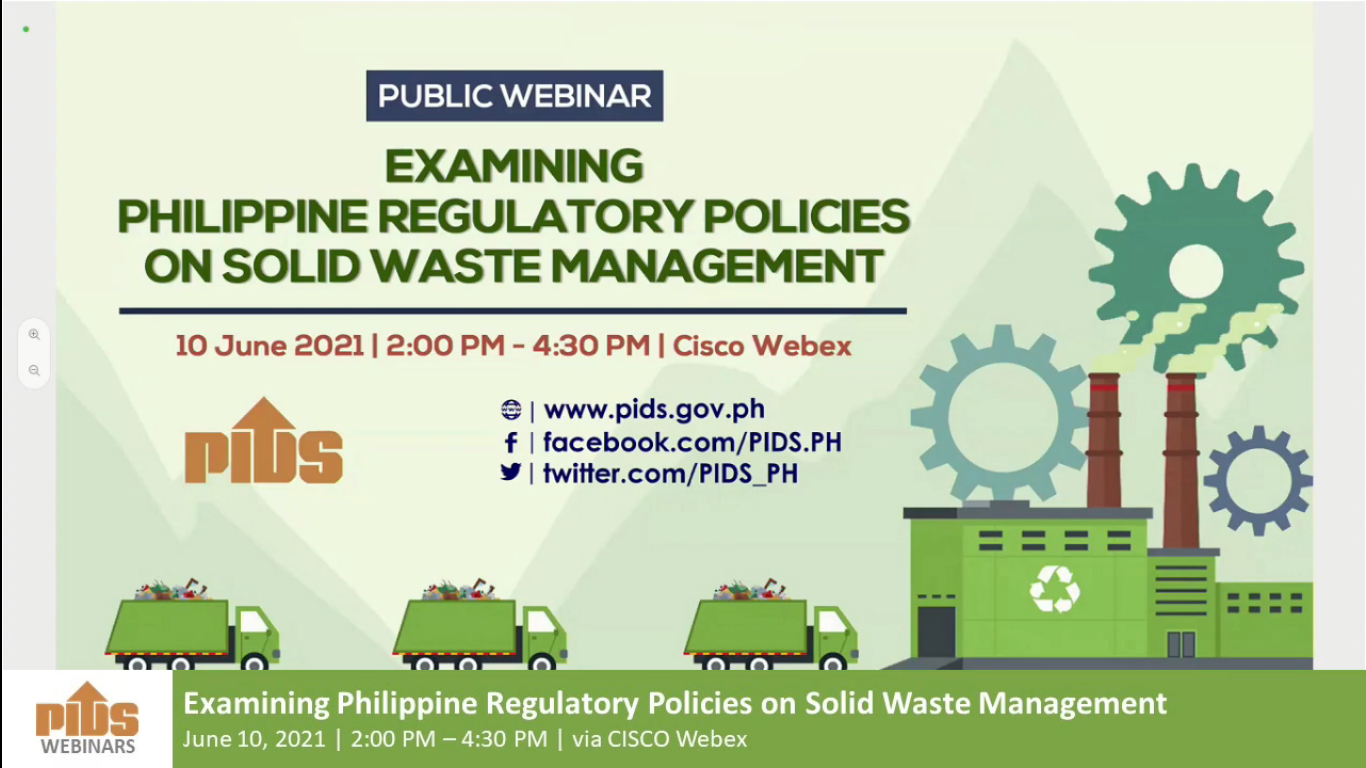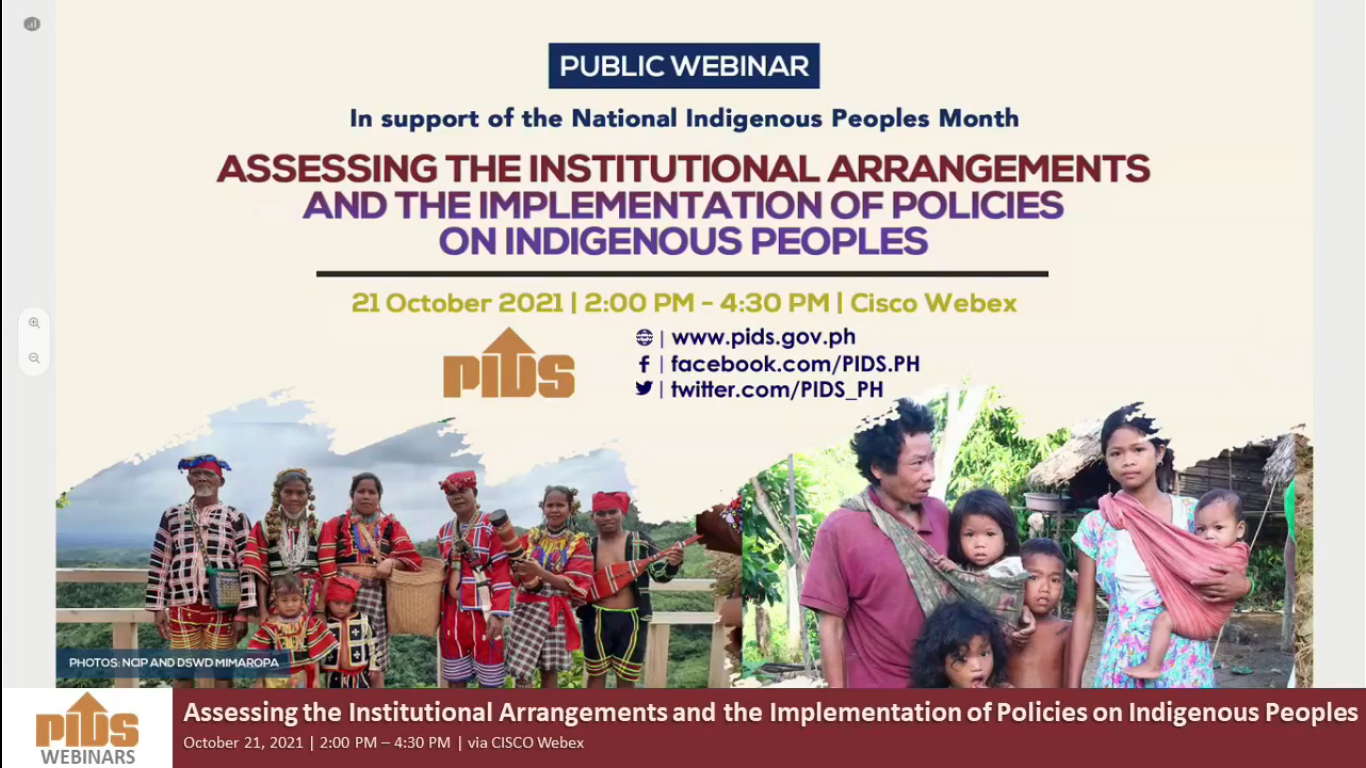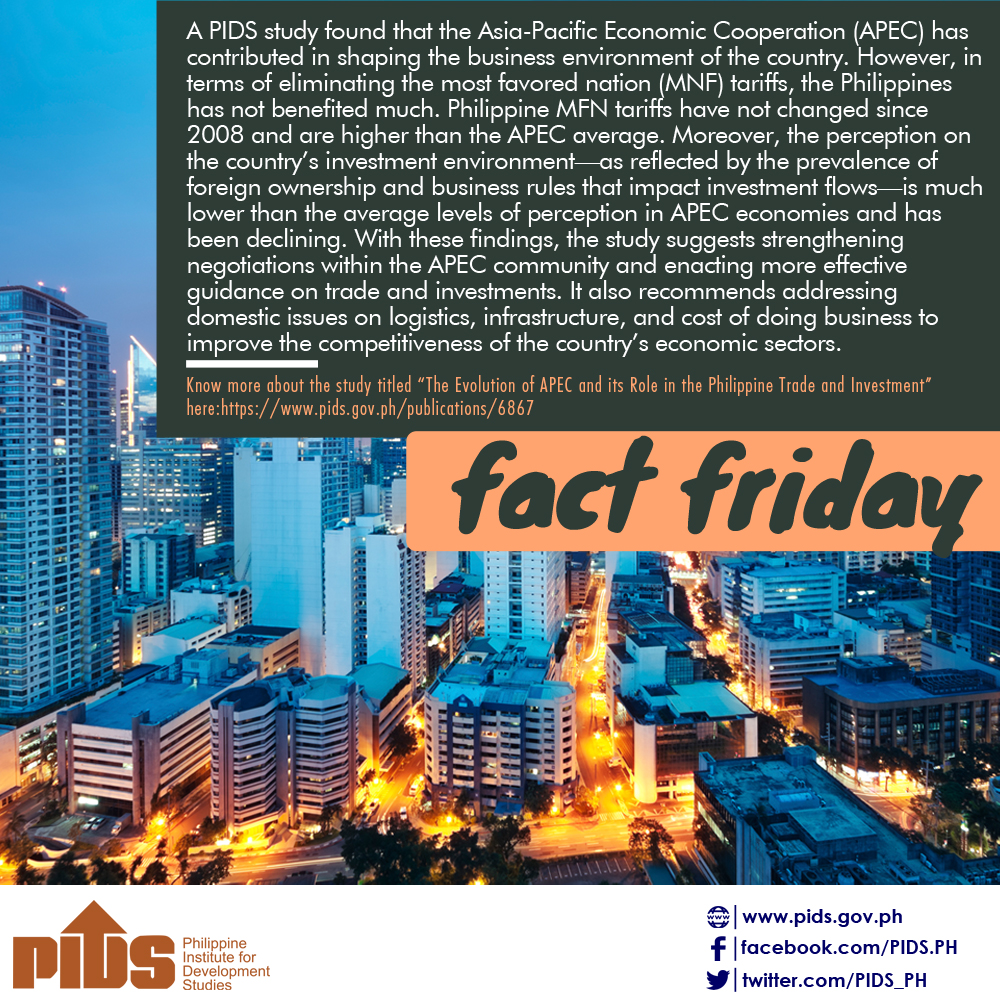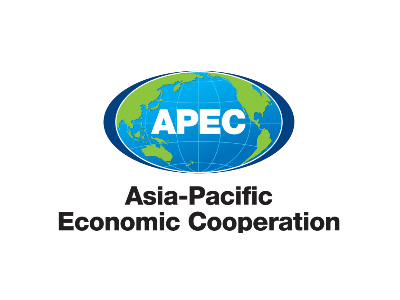
The Asia-Pacific Economic Cooperation (APEC) has a weak influence in shaping the policies of the Philippine government.
This was according to an online perception survey conducted by Philippine Institute for Development Studies (PIDS) Senior Research Fellow Francis Mark Quimba and Research Specialist Sylwyn Calizo.
The survey was undertaken to measure the awareness level of stakeholders about APEC, assess their perception on its importance, influence, and relevance to the Philippines, and gather their insights on how they envision APEC and the Philippines post-2020. Respondents were from the government, academe, and civil society organizations (CSOs).
Based on the results, only 4.5 percent of government offices said their policies are influenced by APEC compared to 30.8 percent in CSOs.
The survey also indicated that majority of the respondents from the academe and CSOs have included APEC in their regular operations or aligned their organizational goals with those of APEC.
In terms of familiarity and knowledge about APEC, 76.8 percent of the respondents described themselves as being “at least familiar” with it.
They also believed that APEC has “done an acceptable effort in terms of trade liberalization but [it] can [still] do more to reduce tariffs on APEC-listed environmental goods”.
Meanwhile, the stakeholders expressed their satisfaction on APEC’s effort to increase the total trade in goods; strengthen people mobility, institutional ties, and networks; sustain economic growth; and nurture micro, small, and medium enterprises in the country.
However, they were less satisfied with its efforts to reduce customs waiting time, develop green towns, enhance social equity, and encourage the development of clean technologies as well as support energy efficiency and renewable energy.
The country’s hosting of the APEC in 2015 seemed to have played a big role in eliciting participation in APEC events.
The study showed that government agencies have had high attendance to APEC events such as those hosted by the Economic and Technical Cooperation (37.5%) and the Committee on Trade and Investments (2145.9%). Meanwhile, 30.8 percent of nongovernment institutions and 6.3 percent of government agencies were able to join the events of the APEC Business Advisory Council.
The Philippines has also benefitted from the financial support of APEC. In 2019, 36.4 percent of government agencies and 15.4 percent of nongovernment institutions have applied for APEC funding.
As a multiregional platform, APEC also opened linkage and partnership opportunities for the Philippines.
According to the survey, 68.2 percent of government agencies were able to build better linkages with other stakeholders through the help of APEC.
Similarly, those in the academe were able to establish ties with foreign academic institutions in APEC, especially in East Asia and Southeast Asia.
The CSO respondents, on the other hand, claimed that they have less linkages in APEC. They said these partnerships are only concentrated in Southeast Asia.
Meanwhile, majority of the respondents found that the APEC Business Travel Card (ABTC) is less beneficial to them. The ABTC is APEC’s program to facilitate business mobility and travel in the APEC region. Quimba and Calizo opined that this may be an indication that the respondents want to see more flexible ABTC requirements so that said program will benefit more stakeholders.
In terms of how they envision APEC beyond 2020, the respondents expressed optimism that the interaction and communication among people and businesses in APEC will become easier and more convenient with the advent of new technologies.
Quimba and Calizo said this perception can be correlated to APEC’s initiatives to innovate and promote the digital ecosystem, which was formally recognized through the APEC Internet and Digital Economy Roadmap.
However, they noted that environmental and social scenarios were met with less optimism, particularly in terms of the capacity of APEC economies to provide basic social protection and health services to migrant temporary workers and its ability to conserve and manage the region’s biodiversity and natural resources.
As a way forward, Quimba and Calizo came out with some policy recommendations to further deepen and strengthen the country’s inclusion and participation in APEC.
Specifically, they urged the government to adopt policies and best practices applicable for the Philippines; strengthen participation of stakeholders in seeking APEC project funding and other relevant support; increase awareness of people on APEC’s programs, projects, activities, and accomplishments through the conduct of regular information dissemination campaigns; and review the requirements related to the issuance of the ABTC to Filipinos and how it will benefit them. ###
This article is based on the PIDS Discussion Paper titled “Perception survey in the Philippines on APEC”.
This was according to an online perception survey conducted by Philippine Institute for Development Studies (PIDS) Senior Research Fellow Francis Mark Quimba and Research Specialist Sylwyn Calizo.
The survey was undertaken to measure the awareness level of stakeholders about APEC, assess their perception on its importance, influence, and relevance to the Philippines, and gather their insights on how they envision APEC and the Philippines post-2020. Respondents were from the government, academe, and civil society organizations (CSOs).
Based on the results, only 4.5 percent of government offices said their policies are influenced by APEC compared to 30.8 percent in CSOs.
The survey also indicated that majority of the respondents from the academe and CSOs have included APEC in their regular operations or aligned their organizational goals with those of APEC.
In terms of familiarity and knowledge about APEC, 76.8 percent of the respondents described themselves as being “at least familiar” with it.
They also believed that APEC has “done an acceptable effort in terms of trade liberalization but [it] can [still] do more to reduce tariffs on APEC-listed environmental goods”.
Meanwhile, the stakeholders expressed their satisfaction on APEC’s effort to increase the total trade in goods; strengthen people mobility, institutional ties, and networks; sustain economic growth; and nurture micro, small, and medium enterprises in the country.
However, they were less satisfied with its efforts to reduce customs waiting time, develop green towns, enhance social equity, and encourage the development of clean technologies as well as support energy efficiency and renewable energy.
The country’s hosting of the APEC in 2015 seemed to have played a big role in eliciting participation in APEC events.
The study showed that government agencies have had high attendance to APEC events such as those hosted by the Economic and Technical Cooperation (37.5%) and the Committee on Trade and Investments (2145.9%). Meanwhile, 30.8 percent of nongovernment institutions and 6.3 percent of government agencies were able to join the events of the APEC Business Advisory Council.
The Philippines has also benefitted from the financial support of APEC. In 2019, 36.4 percent of government agencies and 15.4 percent of nongovernment institutions have applied for APEC funding.
As a multiregional platform, APEC also opened linkage and partnership opportunities for the Philippines.
According to the survey, 68.2 percent of government agencies were able to build better linkages with other stakeholders through the help of APEC.
Similarly, those in the academe were able to establish ties with foreign academic institutions in APEC, especially in East Asia and Southeast Asia.
The CSO respondents, on the other hand, claimed that they have less linkages in APEC. They said these partnerships are only concentrated in Southeast Asia.
Meanwhile, majority of the respondents found that the APEC Business Travel Card (ABTC) is less beneficial to them. The ABTC is APEC’s program to facilitate business mobility and travel in the APEC region. Quimba and Calizo opined that this may be an indication that the respondents want to see more flexible ABTC requirements so that said program will benefit more stakeholders.
In terms of how they envision APEC beyond 2020, the respondents expressed optimism that the interaction and communication among people and businesses in APEC will become easier and more convenient with the advent of new technologies.
Quimba and Calizo said this perception can be correlated to APEC’s initiatives to innovate and promote the digital ecosystem, which was formally recognized through the APEC Internet and Digital Economy Roadmap.
However, they noted that environmental and social scenarios were met with less optimism, particularly in terms of the capacity of APEC economies to provide basic social protection and health services to migrant temporary workers and its ability to conserve and manage the region’s biodiversity and natural resources.
As a way forward, Quimba and Calizo came out with some policy recommendations to further deepen and strengthen the country’s inclusion and participation in APEC.
Specifically, they urged the government to adopt policies and best practices applicable for the Philippines; strengthen participation of stakeholders in seeking APEC project funding and other relevant support; increase awareness of people on APEC’s programs, projects, activities, and accomplishments through the conduct of regular information dissemination campaigns; and review the requirements related to the issuance of the ABTC to Filipinos and how it will benefit them. ###
This article is based on the PIDS Discussion Paper titled “Perception survey in the Philippines on APEC”.

